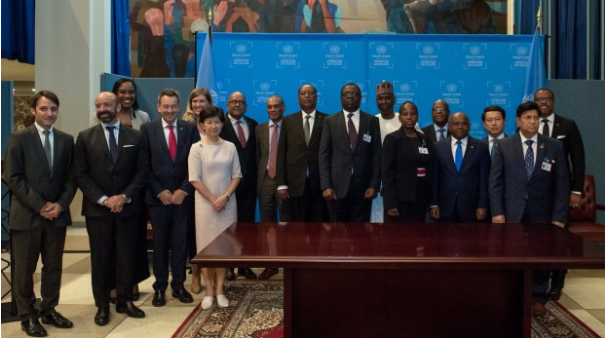12 more states haven taken a step towards banning nuclear weapons.
Five countries ratified the UN Treaty on the Prohibition of Nuclear Weapons (TPNW) during a ceremony at the UN Headquarters in New York last week. Another country ratified the treaty separately, and six others signed onto the treaty.
The treaty now has 79 signatories and 32 States Parties. When the treaty has 50 States Parties it will enter into force, making nuclear weapons illegal under international law.
The countries
The five nations that participated in the ceremony at the UN were Bangladesh, Kiribati, Laos, Maldives, and Trinidad & Tobago. Ecuador ratified the treaty as well. The following states signed on to the treaty, a crucial step in the process toward ratification (or whatever process that particular country has in place concerning international treaties): Botswana, Dominica, Grenada, Lesotho, St Kitts and Nevis, Tanzania and Zambia.
Support from the president
Newly-elected President of the UN General Assembly, Mr Tijjani Muhammad-Bande of Nigeria, opened the ceremony, and spoke passionately in support of the Treaty’s importance in ending nuclear weapons. “We commend states that have joined TPNW and urge those who have not done so to do join in this most vital action,“ he said during his address to the UNGA Plenary event earlier in the day.
Beatrice Fihn, Executive Director of the International Campaign to Abolish Nuclear Weapons (ICAN), celebrated the move by these 12 countries. “Away from most cameras, we come together to do the actual work of nuclear disarmament. For the good of your people and the good of the world you propel the treaty toward entry-into-force […] Today, in this room, I feel the scale tilting toward the elimination of nuclear weapons. This day of action gives us all hope at a bleak time.”
Momentum
The treaty is now almost two-thirds of the way to its entry into force. This momentum is expected to continue. Several countries have told ICAN that they will ratify the treaty soon, and campaigners around the world will not stop until every country is on board.




